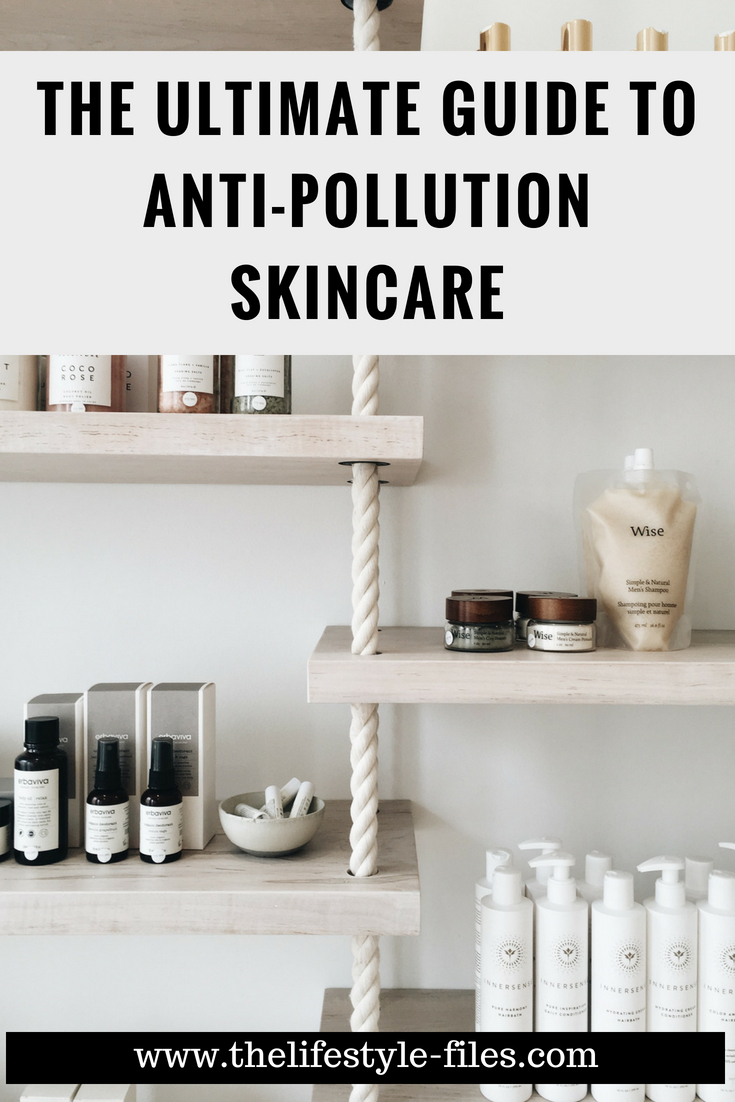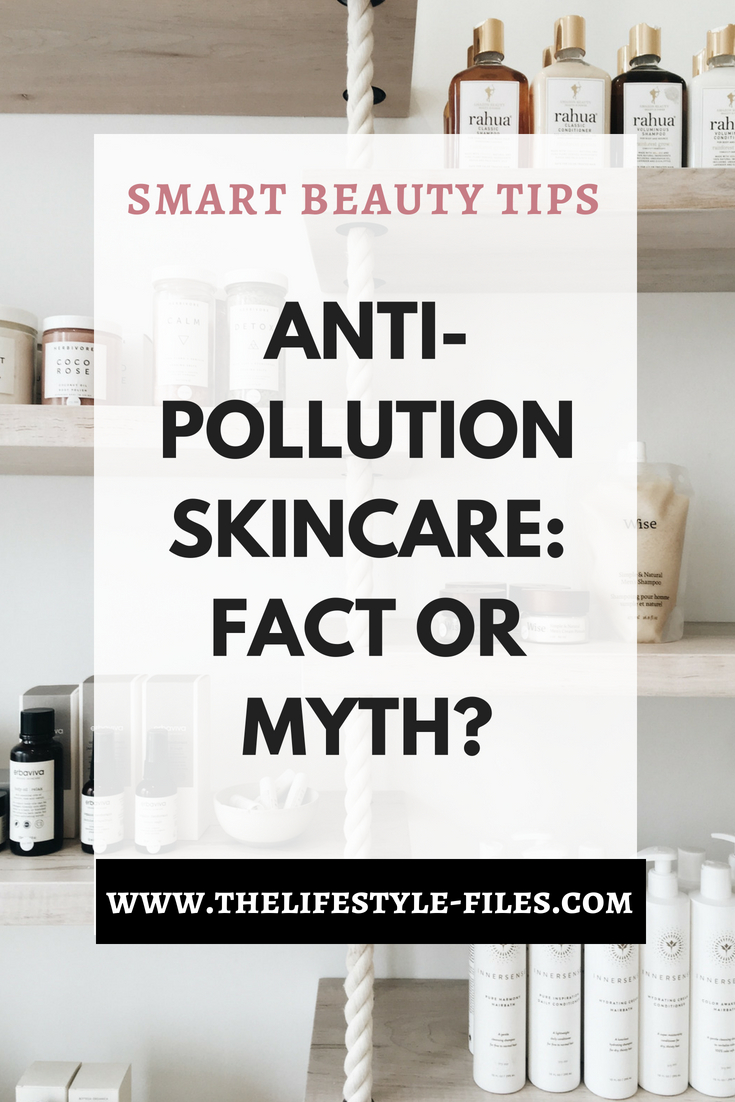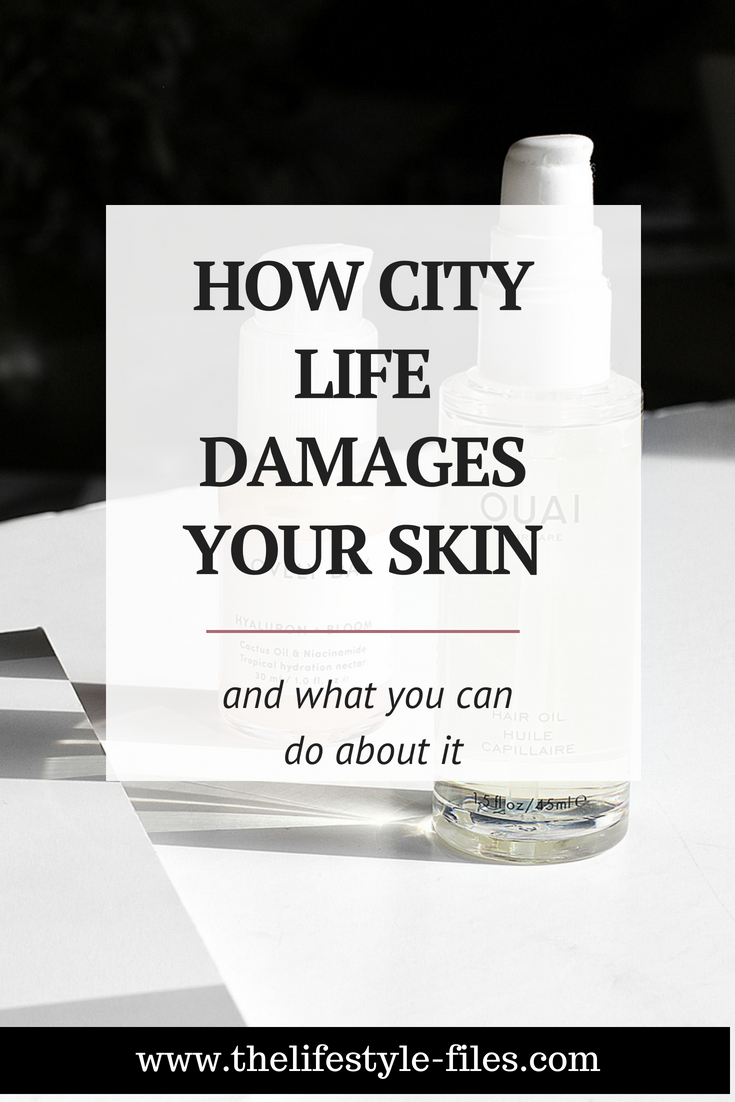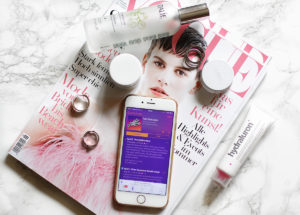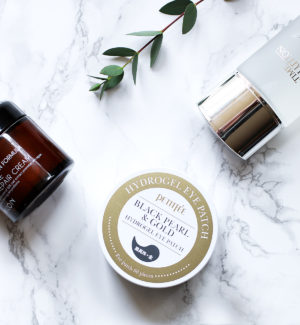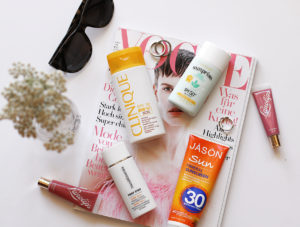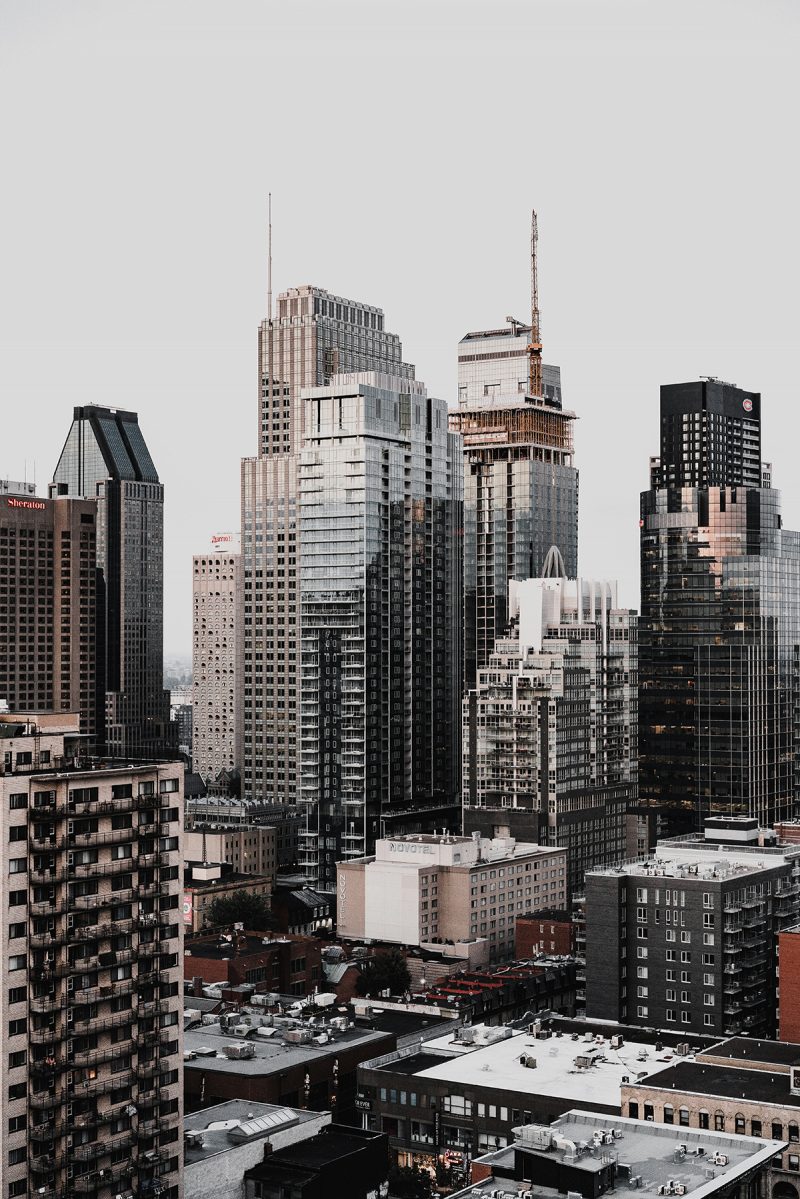 Anti-pollution skincare is a fast growing field of the beauty industry with more and more products on the market that are specifically designed to protect skin from the city pollution.
Anti-pollution skincare is a fast growing field of the beauty industry with more and more products on the market that are specifically designed to protect skin from the city pollution.
I’ll be honest: when I first started seeing these pop up, I was a bit skeptical. I thought this just may be another marketing trick to get us to buy the same products under a different name. So I started to dig a little deeper into the effects of city life (like pollution, smog, sun) on our health and especially on our skin to see whether we’re dealing with facts or myths.
What are we breathing in?
Let me tell you, this was not a fun research. The more I read about it, the more I realized the seriousness of the situation – and not for selfish beauty reasons, but mainly for very concrete, realistic, and grave health reasons.
The problem is most of us do not spare one moment in our everyday life to think about the reality of the world we live in. We have grown so accustomed to constantly hearing about global warming, greenhouse gases, smog, air pollution and its harmful effects that it doesn’t really carry that much weight anymore. Especially as we may think it mainly affects Asian cities. But while the problem may be the gravest there, it doesn’t mean it’s not an issue in Europe or the US.
Do you follow the smog levels in your own city? Maybe when it’s actually visible and palpable, but I’m sure not every single day. Do we really think about what kind of air we’re breathing in? How many stressors affect our body, skin, and organs each day?
It’s easy to forget that whatever we hear on the news or read on the Internet is not an abstract theory – this is the very reality we’re living in, even if it’s mainly invisible like air.
Air pollution has become one collateral fact of 21st century civilization and the incredible technological development of the last 200 years. And as with most 21st century health risks, it’s easy to forget the actual implications for our health, so let’s quickly recap:
- Air pollution (both short- and long-term exposure) can lead to reduced lung function, respiratory failures and infections, stroke, pulmonary diseases, heart failures, and lung cancer
- UV rays and sun exposure can lead to skin cancer
- Smog and air pollution can lead to asthma and various infections and irritations
- Polluted air can cause irritation, coughing, dry throat, and headaches
- The main risks and most harmful pollutants are: UV radiation, sulfur dioxide, ground-level ozone, nitrogen dioxide, and particulate matter (a mixture that may contain soot, smoke, metals, nitrates, sulfates, dust, water and tire rubber and it’s so small it can directly get into our bloodstream).
City life has harmful effects on the skin – fact or myth?
At this point, the fact that city dwelling affects our health in a major (and often harmful) way is quite obvious and indisputable. Not that it is not a cause for concern enough, but this post is supposed to be mainly about the effects of city life on our skin, so let’s examine it from that point of view.
Here’s just a short (and not exhaustive) list of the many different stressors our skin faces throughout the day in the city:
- Air pollution from traffic and industrial production
- UV rays
- Dirt
- AC
- Overheating
- Blue light
- Smoke
- Smog
Not an easy battle, that’s for sure. And according to more and more research, bad city air does have a major effect on our skin. It’s still a new and emerging research field, but so far it seems that anti-pollution skincare products are onto something – the problem at least definitely exists.
Clogged pores
Smoke, dirt, and dust can clog the pores and congested pores lead to spots, pimples, and in worst cases, acne. We don’t even need scientific research to see how much the city leaves its mark on our face – just check your towels and cotton pads at the end of the day. It’s astonishing how dirty our face can get just by spending the day outside.
Dry skin
Smog and environmental smoke can lead to loss of water and moisture in the skin. The same is true for heating that dries the air and thus the skin as well.
Premature aging
If you remember from high school, all atoms must have two electrons in order to be stable. When an atom or molecule is missing an electron, we talk about free radicals. Free radicals bounce from cell to cell basically trying to steal the missing electron from other atoms and destroy them. If they succeed, they can greatly damage the skin, interfere with normal DNA, destroy collagen, cause inflammation and discoloration, and can lead to premature aging, sagging skin, acne, inflammation, and wrinkles.
Unfortunately, city life is directly responsible for the creation of more and more free radicals as they are unleashed by smog, dust, smoke, and UV rays.
Skin irritations
All kinds of skin irritations are increasingly linked to air pollution, from rosacea and psoriasis to rashes and eczema. It can aggregate already existing conditions or contribute to the formation of new ones. It also negatively affects the skin’s barrier function and thus its normal defensive potential, which is not unlimited. An excessive exposure to environmental stressors can lead to further negative skin issues.
Sunspots and sun-induced skin issues
I’ve written extensively on the harmful effects of sun exposure and UV rays. And we’re definitely not safe in the city either.
Sun exposure and a lack of skin protection can lead to sunspots, pigmentation, loss of collagen and thus premature aging, wrinkles, saggy skin, and in the gravest case, melanoma and skin cancer.
How to defend our skin
As far as I see, dermatologists, scientists, researchers, and skin experts are coming to a mutual understanding that there is a correlation between skin issues (like premature aging and irritations) and polluted environment. The exact nature of the correlation, as well as the potential solutions, however, is still subject of further research. And a lot of experts and companies (including beauty brands) are doing related researches, so I expect an increased focus on anti-pollution skincare in the coming years.
In the meantime, here’s what we can do.
Double cleansing
In light of all these research findings, double cleansing (read more about it here) has become even more important as this is the only way we can get rid of both water- (sweat, dirt, makeup) and oil-based impurities (sunscreen, water-proof make-up, sebum).
Washing off the day’s dirt has probably never been more important. Take it seriously, a single facial wipe I think just doesn’t cut it anymore.
The right sun protection
This is a must, even for cloudy days (UV rays can penetrate through clouds). I’m a big fan of physical sunblocks with zinc oxide and titanium dioxide, as opposed to chemical ones. Invest in a good sunscreen, like bareMinerals Mineral Shield Broad Spectrum SPF 50 Daily Prep Lotion or Drunk Elephant Umbra™ Sheer Physical Daily Defense Broad Spectrum Sunscreen SPF 30, and don’t forget to change it every year – sunscreens deteriorate over time.
Antioxidant skincare
Remember the story about free radicals – thankfully, there is a solution against them: antioxidants. Antioxidants basically work by neutralizing these free radicals and thus protecting the healthy cells.
We can consume an antioxidant-rich diet (grape, green tea, berries, nuts, beans, tomatoes, green vegetables, citrus fruits) or use skincare products with antioxidants as the main ingredients to prevent and fight free radical damage.
Look for the following ingredients (antioxidants) in the packaging and ingredient list of skincare products:
- Vitamin C
- Vitamin E
- Ferulic acid
- Green tea
- Resveratrol
- Grapeseed extract
- Coenzyme Q10
- Niacinamide
- Lycopene
Antioxidants work really well together, so choose products that feature several antioxidants. Serums are probably the best formulations for a powerful antioxidant punch.
Special anti-pollution skincare
As far as I can see from the ingredient lists, most targeted anti-pollution skincare is a mix of antioxidants and vitamins. And that’s perfectly fine and I’m not opposed to trying some of these formulations – if the ingredients are right. Always read the ingredient list (here’s how) and check whether there ‘s actually something in that formulation that can work. In this case, look for the above-mentioned antioxidants, vitamins, or ingredients like aloe vera or Biosaccharide Gum-4 that can form a protective layer on the skin.
And don’t forget the right cleansing: As some of these products work by providing a defensive layer on the skin, it’s extra important to wash it off.
Of course, in a way, anti-pollution skincare is a leap of faith, as it’s hard to evaluate the effects, which are usually not even immediate. But considering that research points to the actual existence of harmful effects of pollution and that there are ingredients that can help fight this off, I’d say anti-pollution skincare (whether in the name or only in ingredients) is something to consider.
What do you think about anti-pollution skincare?

